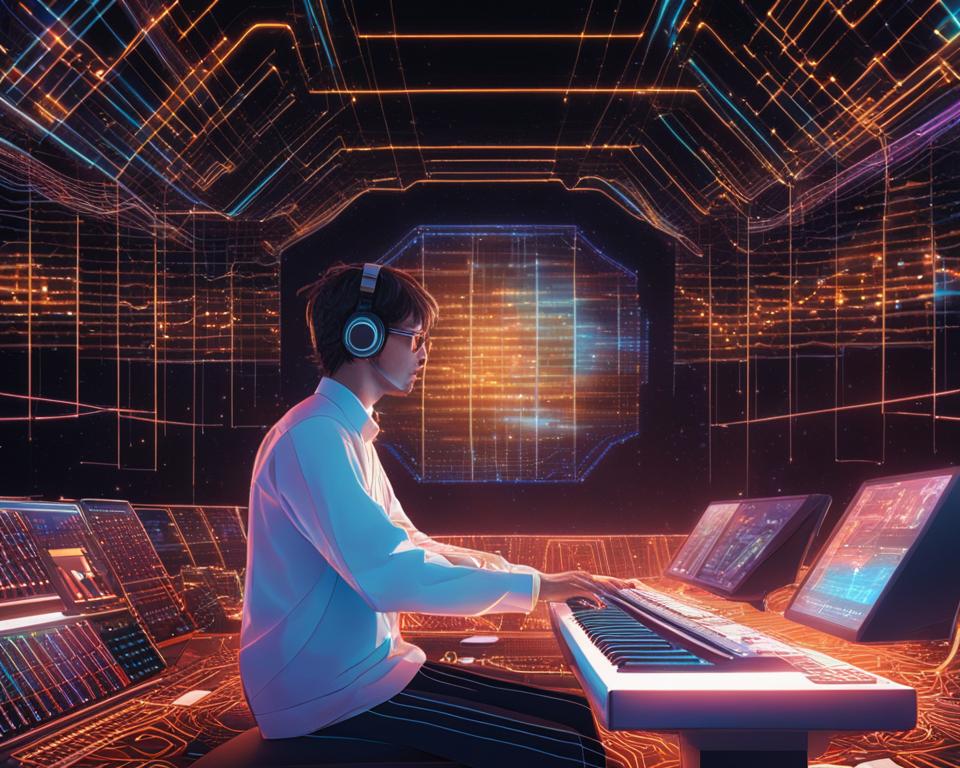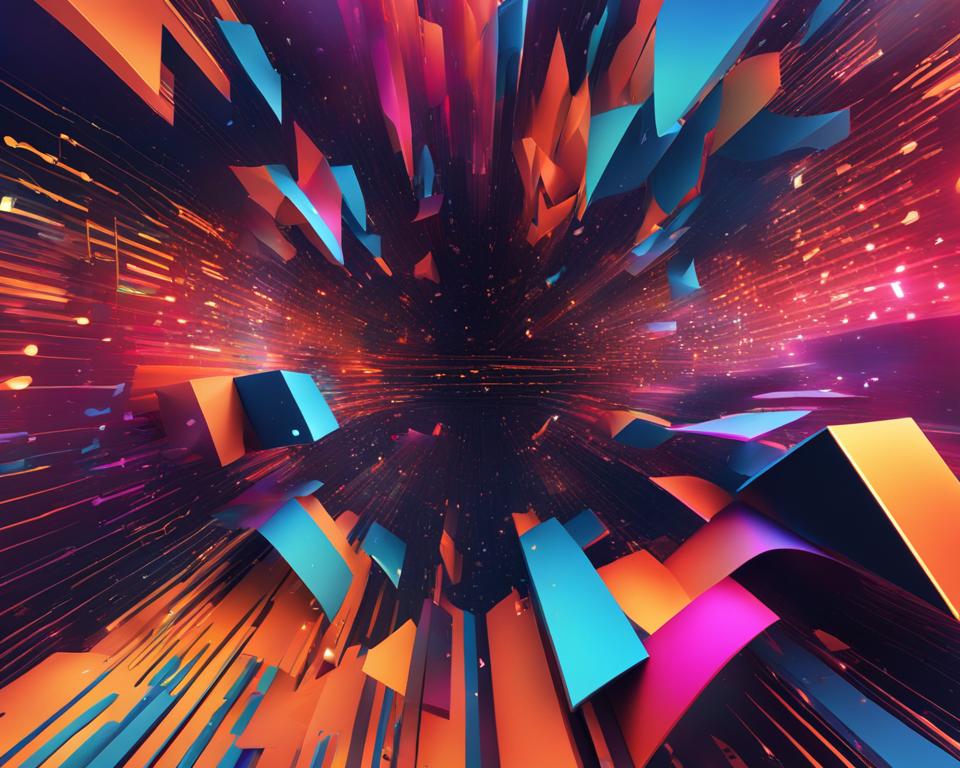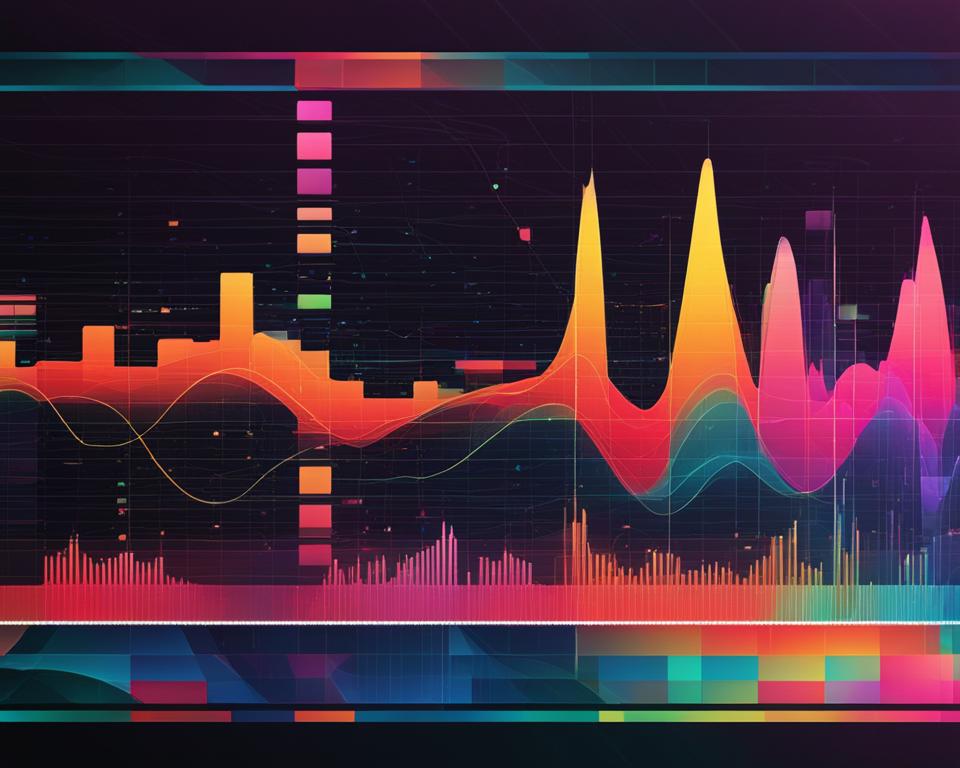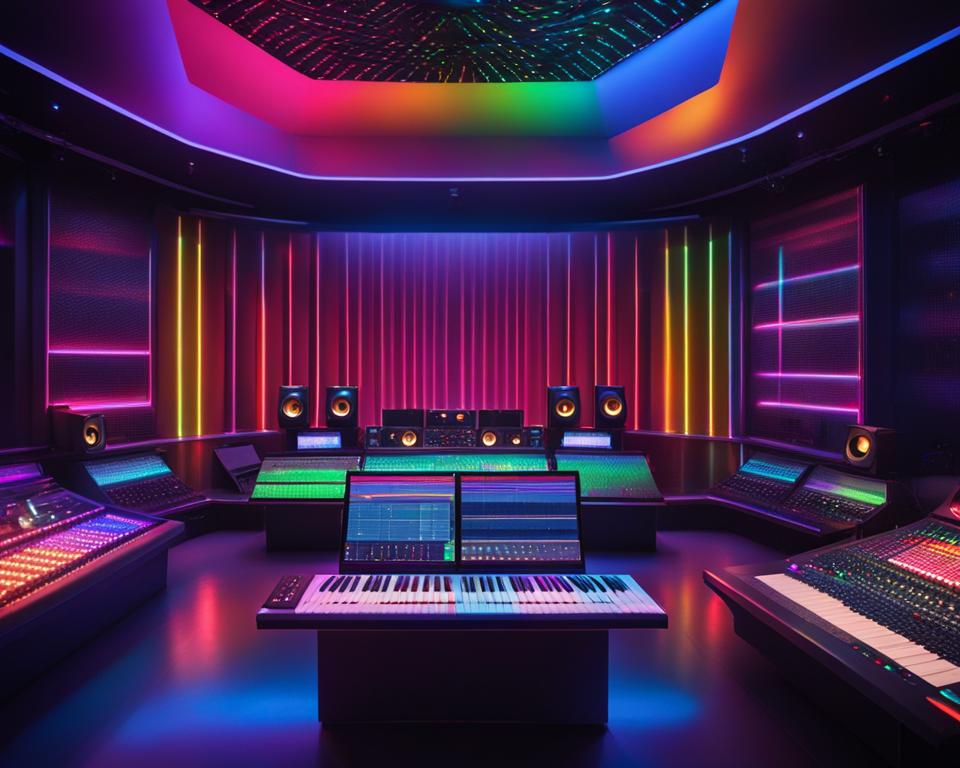In today’s digital era, Artificial Intelligence (AI) is changing the way we interact with the world. It isn’t just about making our lives easier; AI is now revolutionizing the music industry too. With AI-driven music tools, creating music with AI has never been more accessible. That’s why I’m excited to share with you this beginner’s guide that explores the techniques and tips for making AI music.
From understanding the evolution and impact of AI in music creation to exploring AI music generation techniques and enhancing music production with AI, we’ll cover it all. Whether you want to experiment with unique sounds or delve into the world of AI music composition, we’ve got you covered. By the end of this guide, you’ll be equipped with the knowledge and skills to create your own AI music.
Are you ready to dive into the fascinating world of AI music? Let’s get started.
Understanding the Evolution of AI in Music
In recent years, we’ve seen a significant evolution and impact of AI in music creation and production. AI has transformed the creative process and offers innovative ways to compose and enhance music.
AI-driven music tools have emerged, which harness the power of machine learning algorithms to create original and unique compositions. These tools have enabled artists to generate new ideas and explore sounds that were previously difficult to achieve manually.
Moreover, AI has played a critical role in shaping the music industry by allowing for the automation of repetitive tasks, improved music production efficiency, and opening up new opportunities for artists. In fact, the integration of AI into different aspects of the music industry has created a significant breakthrough.
“AI has the potential to transform the music industry as we know it, and the best is yet to come.”
In the next sections, we will explore the techniques and methods used for AI music generation, and how AI can enhance music production. We’ll also examine the influence of AI on artists and the music industry, as well as the future potential of AI-driven music.
Exploring AI Music Generation Techniques
AI technology has revolutionized music production, and AI music generation techniques have been developed for composing original music. There are various algorithms and approaches employed by AI systems to create music, including:
- Rule-Based Systems: These systems use pre-defined musical rules to generate melodies and harmonies.
- Machine Learning: These systems learn from training data and create music based on patterns and styles.
- Generative Adversarial Networks (GANs): These systems use two neural networks to generate new music by “competing” with each other.
To create your own music with AI, you can use AI music composition software like Amper Music and AIVA. These programs allow users to input parameters like genre, mood, and tempo, and use AI to generate original music in seconds.
Additionally, AI music generation provides an opportunity to experiment with unique sounds. For example, Google’s Magenta project developed a program that uses AI to create unique sounds and instruments, including a “NSynth” that can generate hybrid sounds between two different instruments. This technology opens up new creative possibilities for musicians.
Overall, AI music generation techniques provide innovative ways to compose original music, experiment with unique sounds, and revolutionize the music industry. With the right tools and techniques, anyone can harness the power of AI to create their own unique musical creations.
Enhancing Music Production with AI
Artificial intelligence is revolutionizing the way we create music. With its ability to automate repetitive tasks and generate new ideas, AI can enhance the music production process and unlock new creative possibilities. Here are some ways AI is enhancing the music production industry:
| AI technology | How it enhances music production |
|---|---|
| Machine learning algorithms | Can help with song arrangement, chord progression, and melody generation. |
| Virtual assistants | Can automate repetitive tasks such as mixing and mastering, freeing up time for other production tasks. |
| Wavetable synthesis | Can generate unique and innovative sounds that were previously impossible with traditional synthesis. |
By integrating AI tools and software into traditional music production workflows, producers and musicians can work more efficiently and effectively than ever before.
The Influence of AI on Artists and the Industry
Artificial intelligence is revolutionizing the music industry, transforming the way artists collaborate, create, and distribute music. With the help of AI music software, musicians and producers can now automate repetitive tasks, generate new ideas, and experiment with unique sounds that were previously impossible to achieve.
The use of AI in music production has led to the emergence of new production techniques, which have paved the way for innovative music creation that was once beyond our imagination. As AI algorithms continue to evolve, we are seeing more and more artists incorporate AI technology into their music, resulting in unique sounds and a new wave of musical creativity.
However, the integration of AI in the music industry also presents a range of challenges and ethical considerations. For instance, the use of AI-generated music brings up questions surrounding authorship, ownership, and intellectual property rights. In addition, there are concerns that the widespread use of AI in music production could lead to the replacement of human musicians and job loss in the industry.
Despite these challenges, the benefits of using AI in music production are clear. AI software and tools enable artists and producers to work faster, smarter, and more efficiently. As AI technology continues to evolve and become more accessible, we can expect to see more artists and producers using AI-driven music software to create their next chart-topping hit.
AI is definitely a game-changer in the music industry, and its influence will continue to grow as the technology advances. It offers exciting new opportunities for both established and aspiring musicians to create music that pushes boundaries and elicits powerful emotional responses from listeners. As the music industry evolves with the use of AI technology, we can look forward to a future of pioneering and boundary-breaking music.
The Future Potential of AI-Driven Music
As AI continues to advance, so too does its potential for revolutionizing the music industry. In the future, AI-driven music could lead to new methods of creativity, production, and consumption.
One of the most exciting prospects is the potential for AI to unlock new musical genres and styles, enabling artists to experiment with new sounds and techniques. With AI-driven music software, artists can leverage machine learning to generate new ideas and inspire fresh creative directions.
Furthermore, AI has the potential to transform the way we consume music. As AI algorithms become more sophisticated, they can personalize the listening experience by tailoring music recommendations to individual preferences. This could create new opportunities for artists to connect with their audience and reach new fans.
However, as with any new technology, there are also challenges to overcome. One of the key issues with AI-driven music is ensuring that it is ethical and does not infringe on copyright laws. There is also the question of how AI-generated music will impact the role of human musicians in the industry.
Despite these challenges, the future potential of AI-driven music is vast. As AI continues to evolve and improve, it will provide exciting opportunities for artists and listeners alike.
For those looking to make their own AI music, there are several tips to keep in mind. Firstly, it’s important to experiment and have an open mind when working with AI-driven music software. Secondly, it’s crucial to understand the limitations of AI and where human creativity and input are still required. Finally, it’s essential to stay up-to-date with the latest advancements in AI technology and leverage them to enhance your creative process.




